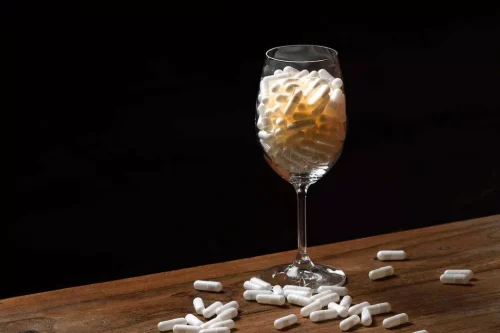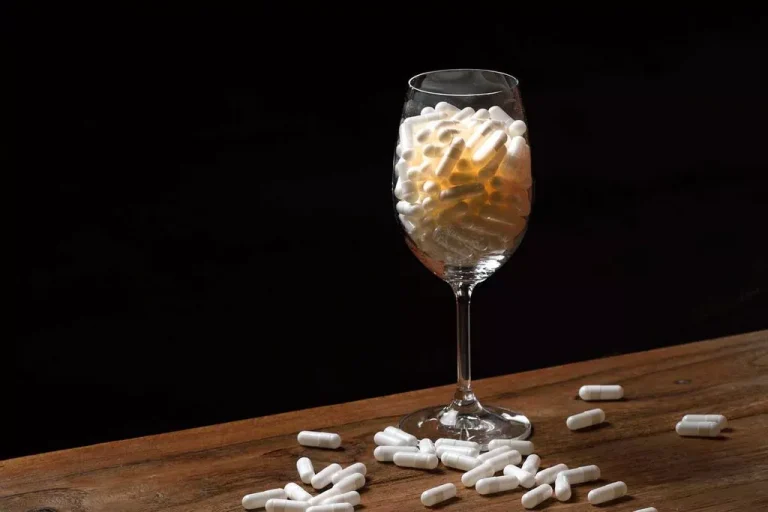
Since alcohol affects everyone differently, it’s important can alcohol help you sleep to understand where your limit lies and how much alcohol you can drink before it starts to affect your sleep. If you’re looking for ways to improve your sleep, an easy place to start is by adopting healthy sleep hygiene habits such as keeping a consistent sleep schedule and creating a calming bedroom environment. A newer study found that one dose of alcohol had no effect on the circadian rhythm in rodents. However, the researchers proposed that perhaps these effects on the circadian rhythm are only seen after several consecutive days of alcohol consumption. In support of the alcohol-melatonin connection, researchers have noticed that individuals suffering from severe alcohol withdrawal tend to have less pronounced melatonin levels and release. Alcohol can disrupt your circadian rhythms, which typically help you fall asleep at night.
Alcohol and the Sleeping Brain
A sleep coach is an individual/healthcare practitioner that understands sleep, recovery, and circadian biology all through the lens of behavioral coaching. They’re a valuable member of the healthcare team who guides clients to behavior and lifestyle changes that will improve their sleep and ability to recover. A certified sleep coach understand their scope of practice, can appropriately screen for red flags and knows how and when to refer their clients to other healthcare professionals. Welcome to SleepCoaching.com, the top online resource for sleep coaching, sleep training and certified sleep coaches. If you want to get better sleep or help your children and other family members sleep better, you’ve come to the right place. Explore articles from our sleep experts, find a sleep coach in our directory and join discussions inside our better sleep community.
How quickly can I see improvements in my sleep after reducing alcohol consumption?
Alcohol can initially suppress the activity of glutamate, a neurotransmitter involved in arousal and wakefulness. However, as the night progresses, alcohol can cause a rebound effect, leading to increased glutamate levels and disrupted sleep. If alcohol continues to disrupt your overall sleep quality, you may consider cutting it out entirely, or limiting your intake before bedtime. If you’ve stopped drinking alcohol, but are still having sleep issues, be sure to reach out to a sleep specialist.
- And when this happens night after night, you’ll find yourself dealing with insomnia.
- Large doses of alcohol produce stupefied and comatose sleep as a primary symptom and sleeplessness as a secondary symptom.
- If you provide sleep coaching services and would like to get listed in the coaching directory, follow these steps to add your business.
- Typically, your first REM cycle happens about 90 minutes after you fall asleep, but after drinking alcohol, the onset of REM sleep is delayed.
What To Do After Drinking Too Much Before Bed
- His research and clinical practice focuses on the entire myriad of sleep disorders.
- Normal sleep cycles through four stages, which are either considered rapid eye movement (REM) sleep or non-REM sleep.
- They are certified sleep coaches and medical professionals who volunteer their knowledge and experience to help others sleep better here on our site.
- However, while alcohol may hasten the sandman, it can negatively impact sleep quality.
- If you want to avoid any ill-side effects of alcohol—at least as it relates to your sleep—cut yourself off around three hours before bedtime.
However, again, thereare other possible mechanisms that may also contribute to these effects. The increase in delta activity is also consistent with alcohol’s GABAagonist properties. GABA mediated hyperpolarization of cortical and thalamo-corticalneurons is thought to underlie the calcium channel mediated burst firing that results inEEG delta activity (Steriade 1999). While alcoholdoes not lead to presynaptic GABA release in the thalamus or cortex the way it does insome other brain regions (Kelm, Criswell, and Breese2011), it does enhance the function of GABAA receptors. The movement between NREM and REM sleep involves a complex interaction betweenREM-on and REM-off neuronal groups in the brainstem. The REM-on groups largely consist ofcholinergic cells in the lateral dorsal tegmentum (LDT) and the pedunculo pontine tegemental(PPT) nuclei.

2 Acute alcohol: sleep EEG data
P2 amplitude was,however, smaller in alcoholics than controls with the difference being largest at Cz,where the component was maximal, but smaller at other sites (see Figure 5). There were no sexdifferences or interactions between diagnosis and sex for K-complex incidence, P2amplitude or P2 latency. Frontal (but not posterior) N550 and P900 amplitudes were smallerin alcoholics than controls and smaller in men than women, but the sex difference was notrelated to diagnosis. Latencies of N550 and P900 did not differ as a function of diagnosisor sex.


Nosex differences in the effects of alcohol on sleep were seen in the group of olderadolescents studied by Chan et al. (Chan et al.2013). In a study of 42 recovering alcoholics (15 women) and 42 controls (23women), we found that women had a better sleep efficiency and more delta activity duringNREM sleep than men, regardless of diagnosis (Colrain,Turlington, and Baker 2009a). Further, estimated lifetime alcoholconsumption predicted percentage of SWS in alcoholic men but not alcoholic women (Colrain, Turlington, and Baker 2009a). Estimatedlifetime alcohol consumption was higher in alcoholic men than women, and the women hadlonger periods of sobriety prior to testing on average.

Insomnia and Alcohol
It’s about setting a positive tone for the discussion, which is essential in ensuring both partners feel heard and understood. Share your goals with friends and family so they can support your efforts. 💙 If you’re struggling with stress, try stepping out of the rumination cycle by Working with Thoughts. If your evening routine typically https://ecosoberhouse.com/ involves alcohol, replace it with other relaxing activities.
- Yules,Lippman and Freedman (1967) studied four young men over three or five nights ofdrinking with 1 g/Kg ethanol administered 4 hours before bedtime.
- While it might help you fall asleep faster, the overall quality of your sleep will be compromised, leading to fatigue and cognitive impairment the following day.
- While this may work for a short time, typically, more alcohol is needed to accomplish this over time.
- The percentage of REM sleep in the first half of the night was not decreased onthe first drinking night at either the 0.03 or 0.10% BAC doses in the Feige et al. (2006) study.
- Overall, if you’re consistently having trouble falling asleep or staying asleep, talk with your doctor about identifying and treating the source of your sleep issues.
While alcohol might make you feel drowsy if you drink enough of it and that might appear to help you fall asleep quickly, it significantly reduces the Alcoholics Anonymous quality of your sleep throughout the night. Alcohol often does reduce sleep onset latency—the time it takes to fall asleep. Depending on how much alcohol is consumed, however, what seems like falling asleep may be something closer to passing out. And we quickly build a tolerance for the sedative effects of alcohol, which means you may need to drink more to have the same initial sleep-inducing effects.

This hypothesis has not been directly tested, and it should be notedthat other factors may play a role in the increased REM seen in long-term abstinentalcoholics. For example, administration of the tumor necrosis factor α(TNF-α) antagonist etanercept led to normalization of REM sleep in 18 abstinentalcoholics (Irwin et al. 2009). An indirect test of the neuronal loss hypothesis of K-complex amplitude deficitin chronic alcoholism was conducted using gray matter volumes from structural MRI dataacquired from the subjects in Colrain et al.(2009). Statistical models were constructed to determine the extent to whichcortical and subcortical volumes could predict evoked potential component amplitudes insleeping alcoholics and controls.
Alcohol can lead to frequent urination at night
While alcohol is often mistakenly used in an attempt to relax or unwind, its impact on the quality of sleep can be quite negative. Along with prescription medications and folk remedies, many have incorporated a glass or two of alcohol into their nightly routine to try to catch a few more hours of shuteye. Alcohol can initially enhance the effects of GABA, a neurotransmitter that promotes relaxation and sleep. However, prolonged alcohol exposure can lead to a depletion of GABA levels, contributing to sleep disturbances. CBTi is recommended as the best starting point for treating insomnia that has lasted more than four weeks (chronic insomnia). Unlike sleeping pills, CBTi helps you overcome the underlying causes of your sleep problems rather than just alleviating the symptoms.
